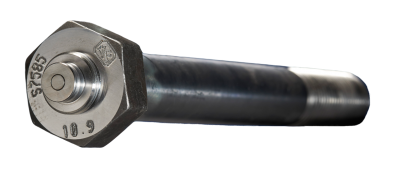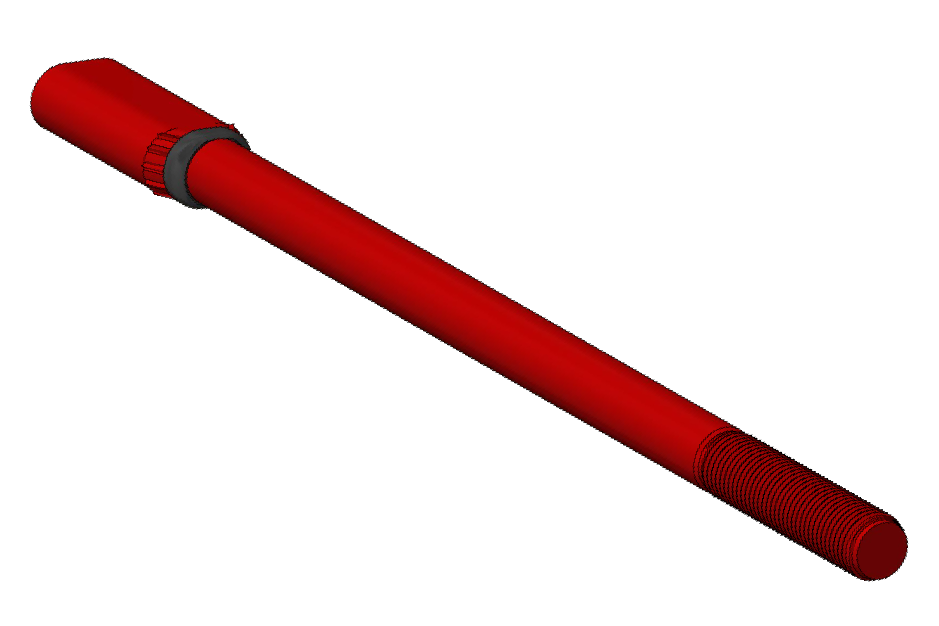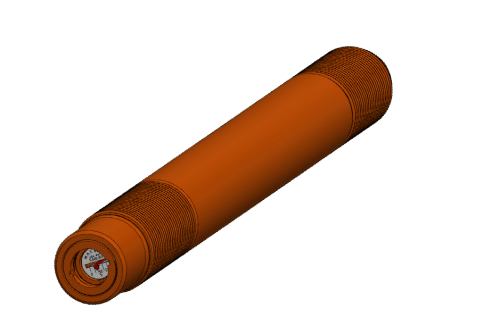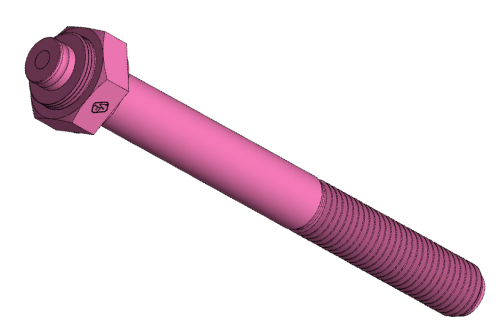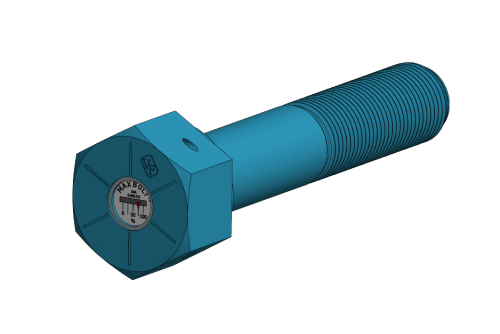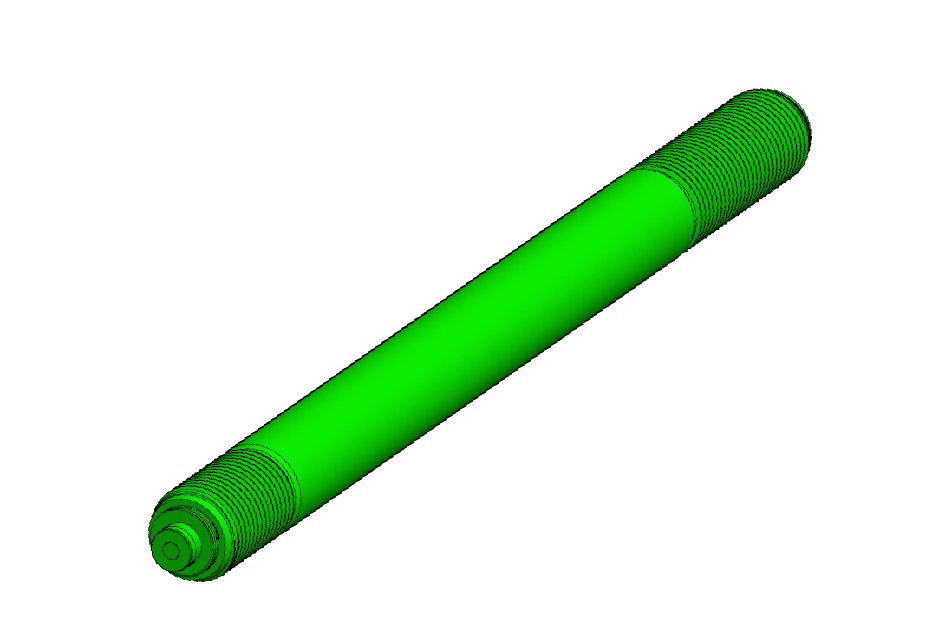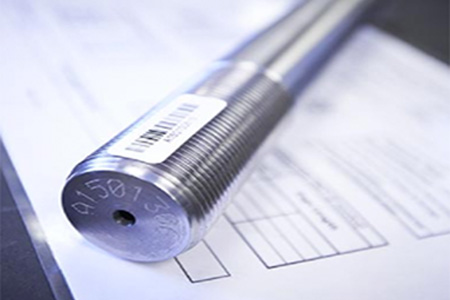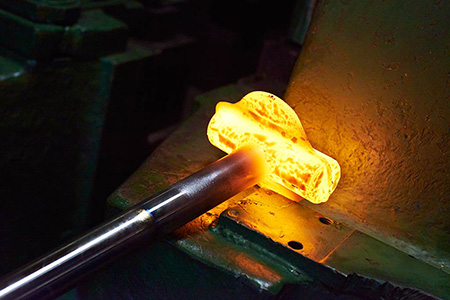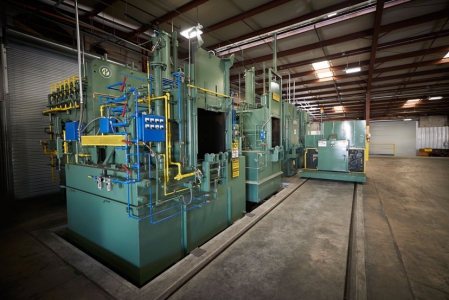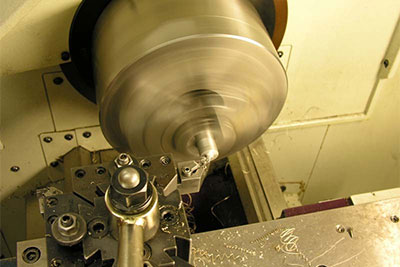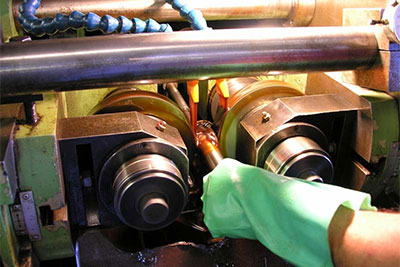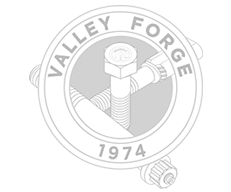Valley Forge & Bolt’s load indicating fastener could help the wind industry lower its O&M costs.
By Kenneth Carter
As printed in Wind Systems Magazine June 2017
Since 1974, Valley Forge & Bolt has supplied bolts and fasteners for a variety of industries that include mining, oil and gas, cranes, scrap metal, and cement processing.
With a recent addition to its line of products, Valley Forge & Bolt is making inroads into wind.
“We have a product which is perfect for the wind industry,” said CEO Michele Clarke.
That product is called a load indicating fastener, and its installation in wind turbines could greatly reduce maintenance, according to Clarke.
“Usually, when you have a fastener, you have a specification to torque it. Load has been translated into torque but it is uncertain what load is actually on the fastener,” she said. A load indicating fastener will show you direct load on the fastener regardless of how much torque you apply. You’re actually seeing the design load on the fastener.”
 Load Indicating Fastener Specifications
Load Indicating Fastener Specifications
Valley Forge & Bolt follows the ASTM F-2482 specification when it comes to Load Indicating Fasteners. That specification allows the company to be within plus-or-minus 5 percent accuracy on a fastener’s designed load, per the ASTM standard. Fasteners using torque have been found to have a direct load accuracy tolerance of plus-or-minus 30 percent, some refer to the torque to tension relationship.
With this technology, an end user can quickly see if a fastener is losing load. This becomes very important in critical applications.
In a recent application for the oil and gas industry, Valley Forge was able to replace standard conventional studs of a 20-year-old heat exchanger with its load indicating fasteners. The exchanger was infamous for being a notorious leaker. By replacing the studs, the company was able to save about $213,000 over the course of five years.
Translating the load indicating fastener into the wind industry also could reap economic benefits, according to Clarke.
“That’s how we’ve excelled in this industry,” Clarke said. “We’ve been providing an added feature of seeing load on your fastener.”
Collecting Data
With more and more wind farms seeking out ways to translate the constant flow of data coming from wind assets into useful information that can prevent maintenance and save on the bottom line, Valley Forge & Bolts has developed a new type of fastener that will help collect that data, according to Clarke.
“What we have for wind is a wireless transmission probe that, using Wi-Fi, will send your load information to your tower data collection points,” she said.
Being able to pull data from the fasteners can prevent or delay costly maintenance visits, according to Clarke.
“Instead of a man having to go up the tower with torque wrenches on his back, you can just poll the tower, and you can say, OK, bolt number 22 is a little bit low, but we can wait until we next go up for maintenance,” she said.
Preventing Maintenance
But Clarke said if load indicating fasteners are installed at the beginning of an asset’s installation, then bolt maintenance issues are reduced.
Problems arise from the use of unnecessary torque, and when the fasteners are unevenly loaded, that’s how they can end up breaking.
“Some fasteners are carrying more load than the other fasteners,” Clarke said. “And those fasteners get too much load and then they crack and you have all these problems.”
So the advantages for the wind industry are twofold.
“I think for the wind industry, if we could get in there and get perfect installation, then they’d just recheck,” she said. “With our system, the fastener can send data once a day or it can send data once a week. And then you’ll just have a router that collects the data and downloads it, and nobody has to climb up that tower and tighten fastener unless it is warranted.”
A large part of the advantage of Valley Forge’s Wi-Fi fasteners will be their ability to keep maintenance costs down as well as keeping wind technicians from potentially hazardous conditions when possible, according to Clarke.
Clarke also sees Valley Forge’s fastener technology being extremely helpful in offshore wind.
“On those projects, they put a man down by helicopter to tighten the fasteners,” she said. “I can imagine this would save a fortune if you don’t have to put somebody out there unless the bolts are really coming loose or having issues.”
The fasteners’ ability to transmit data on their status makes it a perfect application when it comes to tech safety, according to Clarke.
Colorado Project
Clarke said Valley Forge is involved with a wind project in Colorado with a German company.
“It’s a project that we’ve supplied some load indicating fasteners, not the wireless,” she said.
The project has been moved back over the past few months mainly because of wind complications, but Clarke said the project should be ready to install by June.
“This one will be our first big installation for a big OEM,” she said.
Clarke said Valley Forge also manufactures a washer for the foundation bolts that could be helpful when building turbines.
“The foundations on these towers are critical, and we’re testing that one out,” she said. “That’s another product we would offer up to the wind industry.”
In the meantime, Clarke said Valley Forge plans to focus on what it does well. About 40 percent of the company’s business is with the mining industry, and it’s there where the wireless fasteners are going to be rigorously tested.
“We have three mining installations in South America running with wireless, and we’re going to have one in Australia in July,” she said. “That’s going to be a big installation. They’re basically doing a large quantity of wireless probes on a rotating ore crushing mill.”
Started with Mines
Clarke’s father, Ron Clarke, started Valley Forge 43 years ago.
“He had experience in making and designing and setting up these large forging machines all over the world,” Clarke said. “He started making bolts for mines here in Arizona. Slowly, we’ve developed what I think makes us unique, a large volume of patented products that we’ve developed.”
By being involved in so many industries, Clarke said it has given Valley Forge the ability to adapt and offer products and services that best serve its customer’s needs.
“Basically, we’ve spent these years developing solutions that solve customer’s problems by going to their sites and seeing what’s working and what’s not working in their bolting applications, then we come up with ideas that have made their maintenance and safety issues easier to handle which saves them downtime. Saving downtime always translates directly into saving money” she said.
Reprint courtesy of Wind Systems Magazine June 2017

